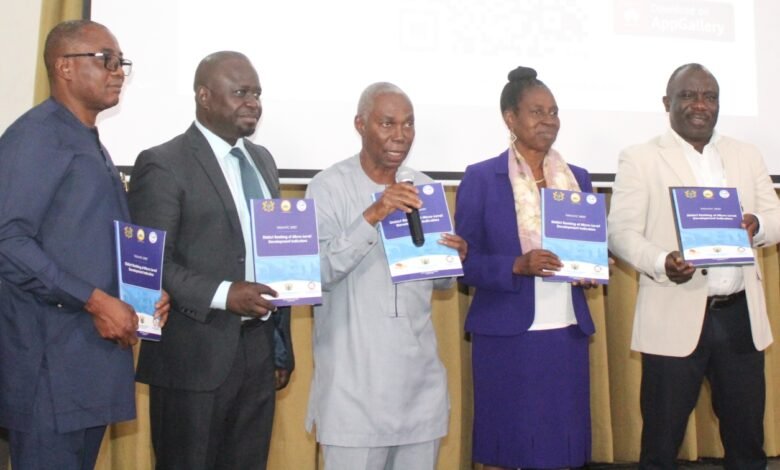
Ghana’s population is projected to increase by 20 million from now to 2050, bringing the number of persons in the country to about 53 million in the next 26 years.
Currently, the country’s population stands at 33, 007, 618 million, which is 1.07 times of that of the 2021 population figure estimated at 30.8 million.
Over the period, 15 of the 16 regions would have population of more than one million except Oti Region which would have population less than one million.
In addition, in the next 26 years, six of the country’s regions, especially the northern regions would remain predominantly rural.
The Director of the University of Ghana Regional Institute of Population Studies (RIPS), Professor Ayaga A. Bawah, stated this at the dissemination of Ghana’s population prospects, district-level population projections and launch of the maiden district rankings report and Ghana Stats Mobile Application.
The programme was organised by the Ghana Statistical Service (GSS) in collaboration with the University to discuss the country’s population trends and its impact on national development as well as launch the Ghana Stats Mobile Application.
Speaking on the topic “Key messages from 2024 revision of the World Population Prospects – Policy implications from the 2021 Population and Housing and Census (PHC) Thematic Report on Population Projections (2021-2050), Prof. Bawah said the drivers of the projected population increase were children and women, adding the projected population increase would have implications on the country’s development.
He said projected population increase meant that the country had to prepare and cater for additional 20 million people.
Prof. Bawah said the increased population would have impact on water, energy and infrastructure use, adding that the cities particularly Accra would have more gridlocks if nothing was done on infrastructure planning.
He said the youth “are and would” constitute the majority of the population, which should serve as a good demographic dividends for the country to harness.
Prof. Bawah stressed the need for the government to put deliberate policies in place to take advantage of the youth bulge, and expand water, energy and infrastructure.
He emphasised the need for employment opportunities to be created for the youth to absorb the growing unemployed youth through increased investment on the skills training for the youth to make them employable.
The Deputy Government Statistician, Dr Faustina Frempong-Ainguah, in a presentation on the District Population Projections (2021-2050) said there were slightly more females to male.
She said it was estimated that about 711, 706 persons would be added to the country’s population each year from now to 2030.
The Senior Policy Advisor at the Office of the Vice President, Prof. Kwaku Appiah-Adu, who delivered a statement on behalf of the government reiterated the government’s commitment to harnessing the country’s population data to accelerate national development.
He lauded the GSS for churning out the population and district-level micro data to provide disaggregated information to help in decision making and planning.
The Government Statistician, Prof. Samuel K. Annim, said the launch of the Ghana Stats Mobile App was to provide District-Level statistics based on the 2010 and 2021 PHCs.
He said the application was a user-friendly mobile application that allowed data users to access levels and ranks for all 261 districts in Ghana and indicators at the national and regional levels.
Professor Emeritus of the University of Cape Coast Department of Population and Health, Prof. Kofi Awusabo-Asare, said needs of the youth should be well captured in state policies, adding policies of the various government agencies must be driven by data.
BY KINGSLEY ASARE







